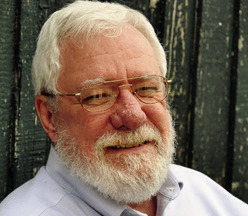We missed more than sugar in wartime
We know that people complained about sugar rations and the lack of rubber for tires during World War II. Those and other shortages were made even more painful because it was tough to drown the wartime anxieties they were constant reminders of. The government reserved 15 percent of the beer and 30 percent of the cigarettes made in the United States for GIs, but practically all of the alcohol used for stronger liquor went to make bombs and torpedoes.
In February 1944, Ed Dauphin, chairman of the Southwest Louisiana liquor industry board, explained, “The whiskey shortage is a reality, notwithstanding rumors to the contrary.
“Furthermore, the shortage is likely to continue to be real as long as the war lasts.”
He said “abnormal labor and economic conditions” were partly to blame, but that “the shortage is due primarily to the fact that military demands for alcohol in the manufacture of explosives are so great that no alcoholic beverages have been distilled since Nov. 8, 1942.”
He said 100 gallons of alcohol were used to make just one 18-inch shell and that “it has been discovered that a better grade of butadiene is more economically made from alcohol than from other materials formerly used.” Butadiene was important in making synthetic rubber, which was important because the rubber plantations that provided real rubber were mostly in places in the Pacific where war was raging.

Innovative GIs found a way to get at some of the weapons-grade alcohol with a concoction they called torpedo juice. They drained some of the 180-proof ethanol used to fuel a torpedo and mixed it with fruit juice. They left enough so that the torpedo still worked fine; the GIs not so good. Torpedo juice was at least twice as potent as regular whiskey and could be as deadly to the drinkers as the torpedo was to its victims.
But there was no torpedo juice on the home front, where liquor was strictly regulated. Dauphin said the good news was that 420 million gallons of whiskey were stored in warehouses in the United States. The bad news was that not all of it was available. “The government allows 15 to 35 percent loss through soakage and evaporation … [and] the industry has placed aside a post-war reserve since whiskey cannot be aged quickly enough after the war to meet any immediate demand,” he said.
That meant that only 208 million gallons of whiskey would be available for the duration of the war ─ and nobody knew in February 1944 how long the war would last.
We felt the squeeze like everyone else, even though a shortage of whiskey would not normally have been a big bother in south Louisiana. Some of the best booze made during Prohibition was made here, and the art of home distilling had not been lost even though the dry days were over. But there was a problem with that, too.
Homemade hooch required a lot of sugar, and even though we grew a lot of cane in Louisiana, refined sugar was so heavily rationed that families barely got enough to sweeten their coffee, let alone make whiskey. Just as with rubber, the United States was cut off entirely from sugar from the Pacific, and German U-boats played havoc with imports from the Caribbean.
Still, even with the restrictions, it appears that a drink of whiskey could be found. Bars remained open in most places, sometimes with limits on drinks. One bar in Lafayette was warned that GIs would not be allowed to go there if it continued to sell liquor to minors, and they needed the patronage of GIs training here.
The Hill Top Club in Lafayette was still holding its regular Saturday dances for GIs and civilians alike in 1943, with refreshments available. Polito’s Bar in Franklin advertised “real beer” and “choicest wines and liquors.” The Hub Club in Morgan City promised “good food and drink” to go with “dancing every night,” and Cass’ Bar in Opelousas said its “complete stock of leading whiskies” was not only available to patrons at the bar but that a bottle could be delivered to your home or picked up through its drive-in curb service.
It also appears that the nation’s supply had not run dry by the time the war ended in 1945. Celebrations of victories in Europe and the Pacific appear to have included a wholesale loss of sobriety here and practically everywhere else in the nation.
You can contact Jim Bradshaw at [email protected] or P.O. Box 1121, Washington LA 70589.

